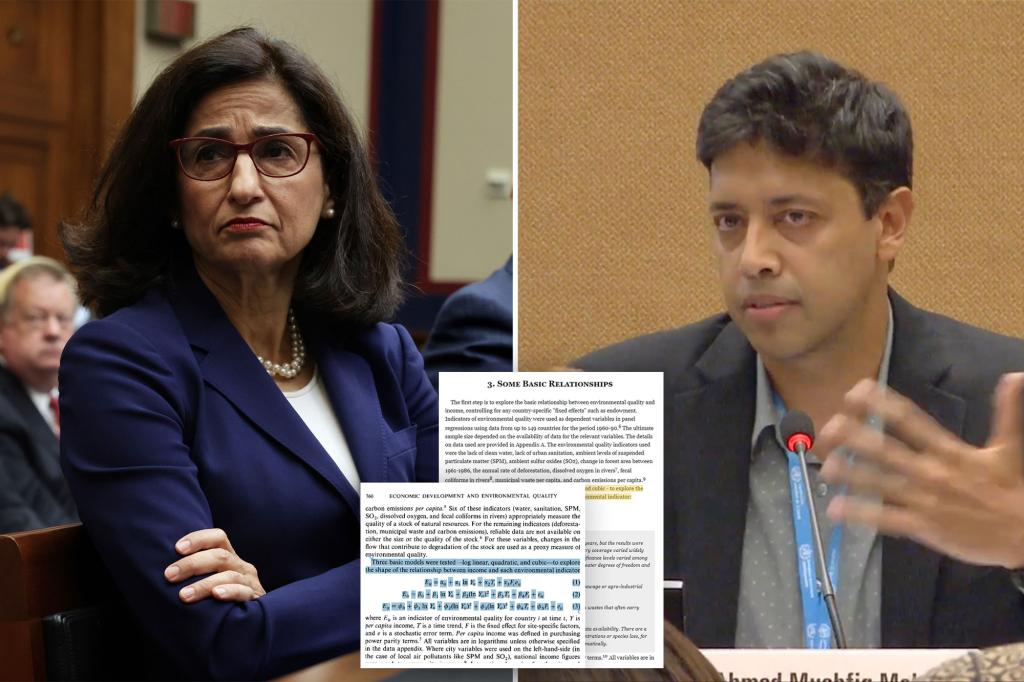A Yale University professor, Ahmed Mushfiq Mobarak, has accused Columbia University president Nemat “Minouche” Shafik of removing a former underling, Sushenjit Bandyopadhyay, from credit on a research paper they co-authored 30 years ago. Mobarak posted his allegations on X, presenting evidence of a paper co-authored by Shafik and Bandyopadhyay in 1992, which was later published in Oxford Economic Papers in 1994 with Bandyopadhyay’s name removed. Mobarak believes that the findings and research in both papers are essentially the same, indicating that Bandyopadhyay’s contribution was significant enough to warrant co-authorship but was removed without explanation.
According to Mobarak, Bandyopadhyay was only mentioned in an acknowledgment section in the 1994 publication, which he views as a reflection of the power dynamics between Shafik, who was Bandyopadhyay’s boss at the time. While Bandyopadhyay declined to comment on feeling slighted, Mobarak stated that Bandyopadhyay believes he should have been credited as a co-author in the second paper. The professor further alleges that the 1994 paper lifted almost entirely from the 1992 report co-authored with Bandyopadhyay, labeling it as “wholesale intellectual theft” rather than subtle plagiarism.
During the time the papers were written, Shafik was a vice president for the World Bank while Bandyopadhyay was a consultant and University of Maryland attendee. These accusations by Mobarak against Shafik add to a series of plagiarism allegations that have recently emerged in academic circles, including former Harvard University president Claudine Gay, who resigned in January under a cloud of disgrace. Despite the mounting allegations, Columbia University has declined to comment on the matter, leaving the issue unresolved.
Mobarak’s claims have thrown light on the issue of academic integrity and the ethical considerations surrounding co-authorship and proper acknowledgment in research publications. The accusations raise questions about power dynamics within academic institutions and the responsibility of mentors and supervisors to ensure fair credit for their subordinates. The allegations against Shafik bring attention to the importance of upholding academic standards and transparency in research collaborations to prevent instances of intellectual theft and unethical behavior in scholarly pursuits.
The case involving Shafik and Bandyopadhyay serves as a cautionary tale for researchers and academics about the potential consequences of overlooking proper attribution and recognition in collaborative works. It highlights the need for clear communication, mutual respect, and adherence to ethical guidelines in academic partnerships to avoid disputes and allegations of misconduct. The controversy surrounding the alleged plagiarism by Shafik underscores the ongoing challenges faced by the academic community in maintaining the integrity and credibility of research outputs, emphasizing the importance of upholding principles of honesty and fairness in scholarly endeavors.


